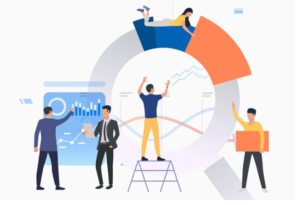
Smart Water Bottle Market regional Size and Share Analysis
The global smart water bottle market was valued at approximately USD 400 million in 2022 and is projected to expand at a compound annual growth rate (CAGR) of 18.5% from 2023 to 2030. This market growth is driven by the increasing awareness of health and fitness among consumers, as well as the rising demand for advanced technology integrated with daily-use products. Smart water bottles, which offer features like hydration reminders, temperature monitoring, and fitness tracking, are gaining popularity in regions where fitness technology adoption is high. The North American market holds the largest share, with a revenue of about USD 150 million in 2022, driven by high consumer spending and the presence of key technology-driven health-conscious populations. Europe follows closely behind with significant demand for smart water bottles, particularly in countries like Germany and the UK, where health trends are prominent.In terms of regional growth, Asia Pacific is expected to experience the fastest growth, with a projected CAGR of 20% from 2023 to 2030. This is attributed to the growing urbanization, rising disposable incomes, and an increasing interest in wellness and fitness activities across countries like China and India. The Middle East and Africa, though currently smaller in market size, are anticipated to see a notable increase in smart water bottle adoption due to growing health awareness and a rising number of fitness enthusiasts in countries like the UAE. Latin America also shows promise, with Brazil and Mexico seeing moderate growth in smart water bottle demand, driven by the increasing number of health-conscious consumers and fitness trends.
Download In depth Research Report of Smart Water Bottle Market
Smart Water Bottle Market Segmentation Insights
The Smart Water Bottle market is segmented based on key parameters such as product type, application, end-user, and geography. Product segmentation highlights diverse offerings catering to specific industry needs, while application-based segmentation emphasizes varied usage across sectors. End-user segmentation identifies target industries driving demand, including healthcare, manufacturing, and consumer goods. These segments collectively offer valuable insights into market dynamics, enabling businesses to tailor strategies, enhance market positioning, and capitalize on emerging opportunities.
Smart Water Bottle Market By Type
- Up to 500 ml
- 500 � 1,500 ml
- Above 1,500 ml
Smart Water Bottle Market By Application
- Online Sales + Sales App
- Offline
Key Players in the Smart Water Bottle Market
Smart Water Bottle market are renowned for their innovative approach, blending advanced technology with traditional expertise. Major players focus on high-quality production standards, often emphasizing sustainability and energy efficiency. These companies dominate both domestic and international markets through continuous product development, strategic partnerships, and cutting-edge research. Leading manufacturers prioritize consumer demands and evolving trends, ensuring compliance with regulatory standards. Their competitive edge is often maintained through robust R&D investments and a strong focus on exporting premium products globally.
- Caktus
- Ecomo
- HydraCoach
- Thermos
- Trago
- Myhydrate
- Sippo
- Kuvee
- Spiritz Adhere Tech
- Out of Galaxy
Future Scope of the Smart Water Bottle Market
The future scope of the Smart Water Bottle Market in the global landscape appears highly promising, driven by rapid technological advancements, increasing demand across diverse industries, and evolving consumer preferences. Market growth is expected to be fueled by innovation, sustainable practices, and integration of advanced technologies like AI, IoT, and data analytics. Emerging economies are anticipated to play a significant role in market expansion due to rising investments and infrastructure development. Additionally, strategic partnerships, product diversification, and enhanced supply chain networks are set to further drive the market, positioning it as a critical contributor to the global economic ecosystem.
Regional Diversity and Economic Significance of Smart Water Bottle Market
The Smart Water Bottle Market showcases significant regional diversity, with key markets spread across North America, Europe, Asia-Pacific, Latin America, and the Middle East & Africa. Each region contributes uniquely, driven by factors such as technological advancements, resource availability, regulatory frameworks, and consumer demand. Developed regions, like North America and Europe, lead in innovation and high-value production, while Asia-Pacific emerges as a hub for cost-efficient manufacturing and rapid market expansion. Economically, the Smart Water Bottle Market plays a vital role in global trade, fostering job creation, technological growth, and sustainable practices, making it a cornerstone of economic development worldwide.
- North America (United States, Canada, and Mexico, etc.)
- Asia-Pacific (China, India, Japan, South Korea, and Australia, etc.)
- Europe (Germany, United Kingdom, France, Italy, and Spain, etc.)
- Latin America (Brazil, Argentina, and Colombia, etc.)
- Middle East & Africa (Saudi Arabia, UAE, South Africa, and Egypt, etc.)
Get Discount On The Purchase Of This Report @ Smart Water Bottle Market